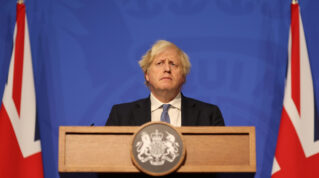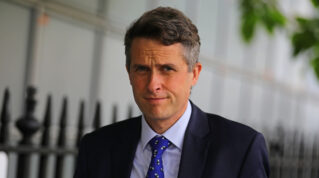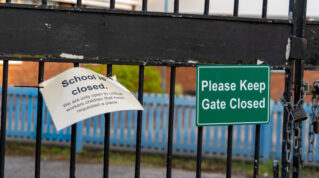The Department for Education has hiked its recruitment targets for trainee teachers, saying it expects a post-Covid exodus of existing staff.
Ministers will be hoping cuts to ITT bursaries and some early-career bonuses – enacted after the short-lived Covid boost in teacher training applications – do not come back to bite them. Post-Brexit reforms will also make it harder to recruit EU staff.
The government estimates 32,600 people will need to start post-graduate initial teacher training courses in the next academic year to meet schools’ needs the following year.
The newly published figures mark an increase of 1,570 teachers on last year’s targets, including 855 more at primary and 715 at secondary.
The government met its secondary teacher recruitment target for the first time in eight years during the Covid boom in 2020.
But normal service was resumed last year when the target was missed again, with less than a quarter of the required physics teachers recruited.
Targets hiked as Covid effect wears off
The DfE said the main reason for raising its goals is an “increase in the number of teachers forecast to leave the workforce” in 2022-23 and 2023-24.
“The economic impacts of the Covid-19 pandemic led to increases in teacher retention, with the number of leavers in 2020-21 the lowest observed since the school workforce census began in 2010.
“We expect a post-pandemic ‘rebound’ in leaver rates, as some of those teachers that delayed their decision to leave service in 2020/21 will actually do so.”
The government was accused of “failing to take a long-term view” by teacher training organisations when it slashed £130 million from bursaries in late 2020.
Then-schools minister Nick Gibb said at the time a significant rise in applications in 2020 showed teaching “remains an attractive proposition”, but Covid is widely seen to have fuelled the rise – and critics warned it would not last.
MFL scramble after bursary cuts and Brexit hurdles
For next year, target numbers have increased for physics, computing, English, modern languages, geography, history, and design & technology.
Modern languages saw the biggest jump in targets, up 42.2 per cent to 2,140 trainees. The DfE said it was to compensate for two years of below-target recruitment, “the first time we have made such an adjustment” for the subjects.
It comes a day after research showed salary top-ups can boost teacher retention – just as the government prepares to revive early-career bonuses in maths, physics and chemistry, but not languages. Its main incentive scheme was axed in 2020 alongside the bursary cuts, which included a 62 per cent cut to languages grants.
Schools Week also previously reported on Brexit’s impact on overseas recruitment, with around a third of secondary language teachers EU nationals. New EU staff now need sponsorship, face costly visa and NHS fees and no longer qualify for capped tuition fees, loans or bursaries.
Such hurdles threaten to undermine ministers’ hopes of hitting their target for 90 per cent of year 10 pupils to be entered into the EBacc by 2025. The government has admitted previously low languages take-up by students is the “primary barrier” to achieving the target.
Maths targets cut
But recruitment targets have been cut for maths, biology, chemistry, classics, art & design, business studies, drama, music, physical education, and religious education.
Maths saw the biggest decline, with 760 fewer trainees thought needed, despite the DfE not meeting targets last year. But it said this was “more than offset” by increased returners, more staff “new to the state sector being recruited” and more maths trainees immediately entering teaching.
Recruitment has been capped for physical education in 2022-23. but targets can be exceeded for other subjects.
The DfE said targets were based partly on pupil number projections. The primary population is expected to fall 1.7 per cent in 2023-24 and secondary numbers to grow by 1.5 per cent, a slower rate than previous years.
But it also factors in expected “short-term increases in post-pandemic leaver rates” and economic growth forecasts.
















Maybe train some DT teachers?
The pay is less than 10 years ago (real terms) and frozen again. Behaviour is much worse. Expectations stupidly high. Blamed for just about everything wrong with society. Bullying American style management practices. Rapidly shrinking budgets. Stagnant career prospects. Impossible OFSTED criteria. Workload going bonkers again. Retention getting worse again. Why does anyone want to become a teacher? Hey! Give it ago! Ha, ha , ha ……..
Would you want someone teaching your children who are mad enough to choose it as a profession. Not very good judgement if you ask me.